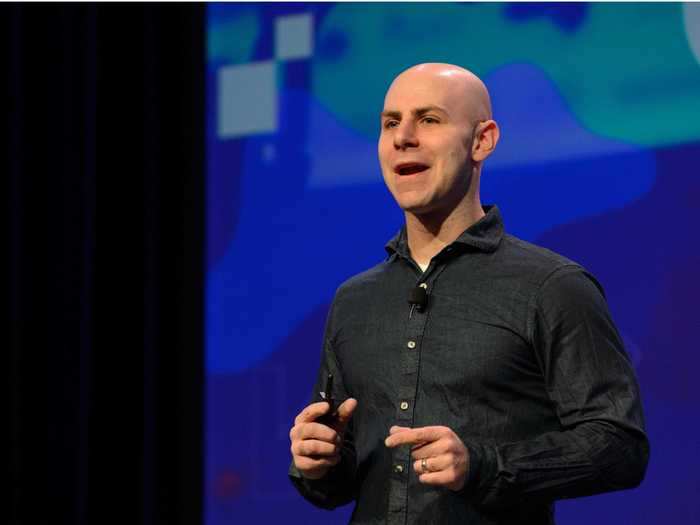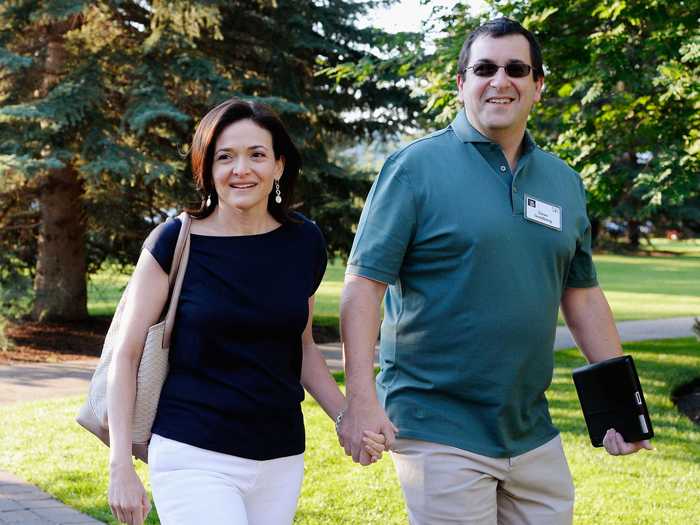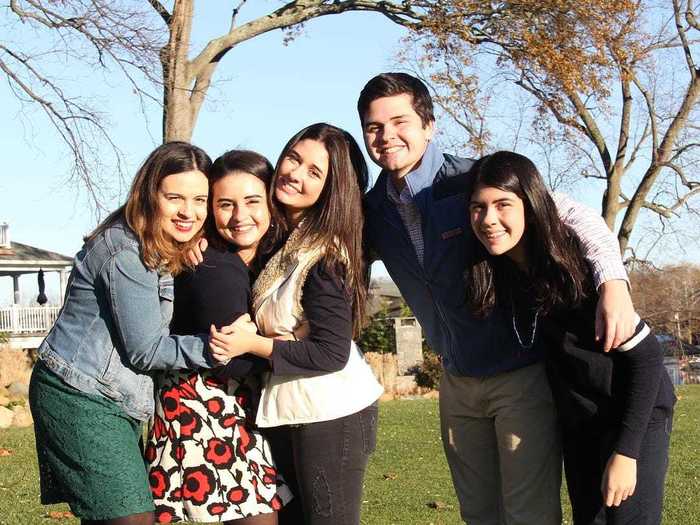Sheryl Sandberg and I video-chatted about grief during a time when the whole world is experiencing it. Here's her personal advice for persevering.
Marguerite Ward
- I recently spoke with Sheryl Sandberg, COO of Facebook and coauthor of "Option B," on video chat about grief and loss during the coronavirus pandemic.
- Sandberg talked about the 2015 death of her husband, Dave Goldberg, and revealed she recently lost a family member because of complications from the novel coronavirus. I talked about losing my brother, Matthew Ward, because of an accidental drug overdose in 2019.
- Sandberg said the pandemic is causing mass grief but it is also presenting an opportunity for collective resilience and courage.
- Sandberg and the psychologist Adam Grant recently released an excerpt from their book, "Option B," along with a new foreword about grief during the coronavirus pandemic to help people cope.
- Visit Business Insider's homepage for more stories.
For the past 11 months, I've been grieving the death of my younger brother, Matthew Ward, who died of an accidental drug overdose at the age of 21. I've been living what Facebook COO and author Sheryl Sandberg calls "Option B."
It's the state where, after experiencing something earth-shattering, a person tries to find the next best option in life. It's where you learn to climb mountains, one step at a time.
Sandberg started living "Option B" in 2015 after her husband, the SurveyMonkey CEO David Goldberg, died at age 47 that same year. Two years later, she coauthored a book with the same name along with the Wharton psychologist Adam Grant. Since then, she's become a public advocate for addressing grief, building personal strength, and for bereavement leave.
On Thursday, I interviewed the Facebook COO on a Zoom call for a story on grief.
I decided to go with my gut and lead with why I was passionate about covering the topic — because of my own journey. When I told her what happened to my brother, she stopped me mid-sentence.
"So sorry. Like, so sorry," she said, putting up her hands. "'Cause the death, it's an avoidable — that — like so sorry."
There was a pause. She knew there were no other words. And I knew too.
After a moment, I began the interview, asking her about what the world is experiencing right now. We began the conversation with how not only we were personally grieving but the world is grieving because of the coronavirus pandemic.
"You didn't want your brother to die. I didn't want my husband to die. The entire world is living 'Option B' right now. Everyone," Sandberg said.
In the US alone, more than 28,000 people have died because of the coronavirus. Some 22 million Americans have lost their jobs in the past month. Millions of others have lost their sense of normality, with social distancing and self-isolation affecting households everywhere.
As I was speaking with Sandberg, I realized that the pandemic has given me, and everyone else on the planet, a unique opportunity. It's given us the chance to talk freely and openly about an extremely difficult, and often personal, subject most keep quiet — grief.
Sandberg revealed she lost a family member because of complications from the coronavirus.
"Now some people are suffering much more than others," she said. "We lost my fiancé's first cousin, so we've had direct death in our family. Some people have health things, some people are much more worried about the economic situation. But I honestly think there's not a single person who's not living some form of Option B right now."
The collective psyche is changed, she says. The pandemic presents an opportunity for collective resilience.
"I think this is going to change us and I hope and want it to change us for the better so that we do more. We give more to strangers, we give more to the people in our lives, and I think we are seeing that, and that is collective resilience," she said.
Recently, Sandberg said that the coronavirus is exacerbating inequality in the US and called on individuals, government, and business leaders to help address it. She and several high-profile business leaders, for example, raised more than $8 million to fund local food banks.
Now Sandberg, along with coauthor Grant, is helping out in a different way. She released an excerpt from the book "Option B," with a new foreword responding to the crisis, available online free. The excerpt includes several tips for coping with anxiety and loss.
"The question is when life throws the unexpected challenge our way, death for you and me, everything we're going through, now what do we do? And the answer is we try to build resilience," Sandberg said.
Here are five important things to remember if you're experiencing anxiety or grief right now, according to Sandberg.
Read the original article on Business InsiderREAD MORE ARTICLES ON
Popular Right Now
Popular Keywords
Advertisement





